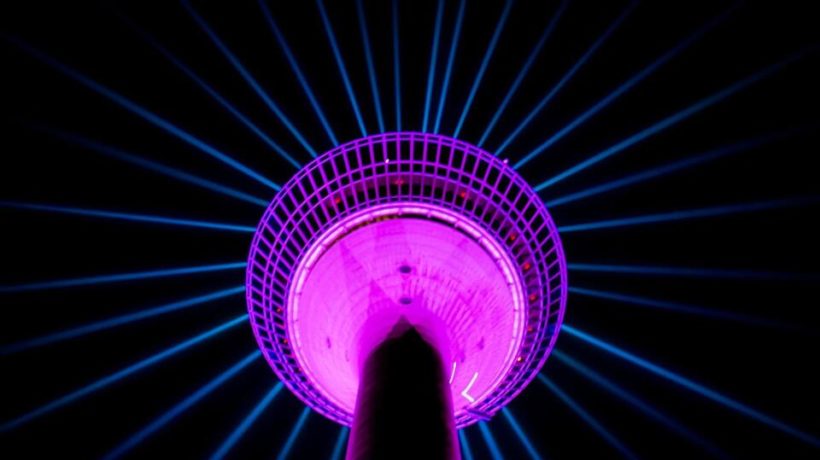It’s no surprise that the world is about to enter a new ‘Roaring 20s’, if we are not there already — a decade where technology and innovation drive significant improvements in the way we do business, work, live, and play. And 5G, cloud and AI are the main components of this change.
There are three technologies in particular that will drive this change: 5G, Artificial Intelligence (AI) and cloud computing.
If South Africa is to grow its economy, while ensuring the best possible quality of life for its citizens, it needs to combine the implementation of skills related to these technologies, with the natural human skills of its people.
This was the overriding message shared at a virtual event held by mobile company Huawei last week, which explored 5G, AI and cloud computing, and their potential to transform South Africa at an economic and societal level.
Speaking at the event, World Wide Worx founder and ICT analyst Arthur Goldstuck pointed out that while South African businesses are aware of the need to adopt technologies such as AI, there is often a shortfall when it comes to actually implementing them.
“This is largely down to a skills shortage,” he says.
Goldstuck pointed out that AI on its own can only go so far. Instead, it will have its most meaningful impact when combined with other technologies, such as robotic process automation, cloud-based business modelling, 5G, and Blockchain.
The impact of these technologies working together can already be seen in several industries:
“The digital storm is upon us,” he says, pointing to the demise of physical music CD’s as one of the most powerful examples of how rapidly industries can be disrupted.
Michael Langeveld, Vice President Africa Cloud Business at Huawei, agrees.
“The Fourth Industrial Revolution (4IR) is accelerating our pace towards an intelligent world,” he says. “The impact is translated into the digitalisation of industries across the board.”
Interestingly, Langveld and Goldstuck believe that the biggest changes aren’t most likely to come from the technologies that look most dramatic (such as 3D printing), but those which (almost invisibly) make tasks simpler.
“Technologies that will completely transform industries are those that will replace the physical with the digital and automate tasks,” Goldstuck says, pointing to how bookkeeping software has almost completely eradicated the need for bookkeepers.
Looking forward, he believes that physical banks, petrol stations, and parking garages are the most likely next targets of digital disruption. “Today, cars park themselves. In the future they’ll drive themselves, perhaps even across Africa.”
But cars can’t park or drive themselves without sufficient levels of artificial intelligence, high enough levels of connectivity, and a way to securely store the vast amounts of data they’ll generate and which will be vital to making roads even safer. These connectivity and data issues have always been a weak point on our continent. In order for Africa to remain at the same level as the rest of the world when it comes to 4IR transformation, we need to enhance our connectivity and internet infrastructure and accessibility.
Remote monitoring, enabled by the greater speeds of 5G, can, for example, support more precise management of agriculture. For crop farming, for example, 5G connectivity now allows constant measurement of soil nutrients and even satellite monitoring of fields to indicate when and how to apply fertiliser, adjuvants, and pesticides for the best possible crop yields.
“Without connectivity these efforts will be hampered,” says Langeveld. “Cloud-based applications are fundamentally changing how we do business and go about our days.”
According to Goldstuck, the technological changes driven by AI, 5G, and Cloud will also come with job losses, particularly among wired telecommunication companies, newspapers, travel agents, and other industries that have traditionally required large amounts of human labour. But that doesn’t mean that new jobs won’t be created.
In fact, Goldstuck points out that there will be a massive surge in demand for individual and family care services, home and healthcare services, outpatient care services, and management technical and consulting services.
“The ‘roaring 20s’ might be driven by AI,” he says, “but the need for human care is bigger than ever. Being human is the single most important skill of the 2020s.”
Both believe that bringing together the best of technology and people has massive potential for South Africa.
“By using connectivity to bring together people and computing,” says Langeveld, “we can build smart government, smart homes, smart devices, smart energy.”
“That’s why we’ve made a massive investment in this country with four of the hyperscale data centres that we’ve put together,” he adds.
As Langeveld points out, however it’s about more than just investing.
“It is very important that we remain trusted, we remain neutral, and we remain embedded in reliable security,” he says. “We’re not going to achieve this on our own. We believe in new partnerships, not only with businesses but with end customers and our local eco-system partners.”
Ultimately, all of these technologies are still young (mobile networks only began deploying 5G in 2019), but there is very clear hope that they can make the whole world better.
“The truth is, AI can benefit all, and can be leveraged to enhance the lives of all, but only if connectivity does not remain a barrier,” concludes Goldstuck. “There are many nuances to that argument, but that is the essence and the starting point for the discussion.”







